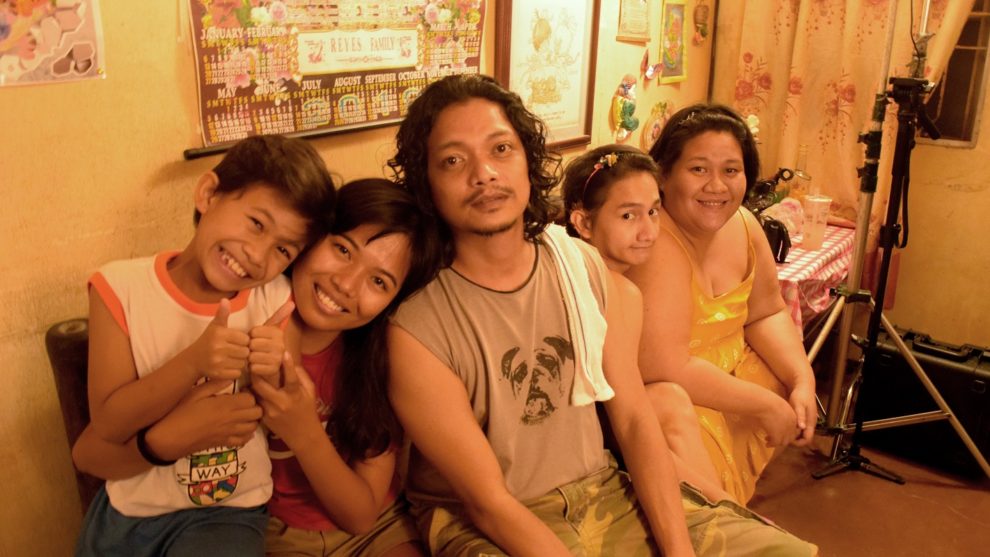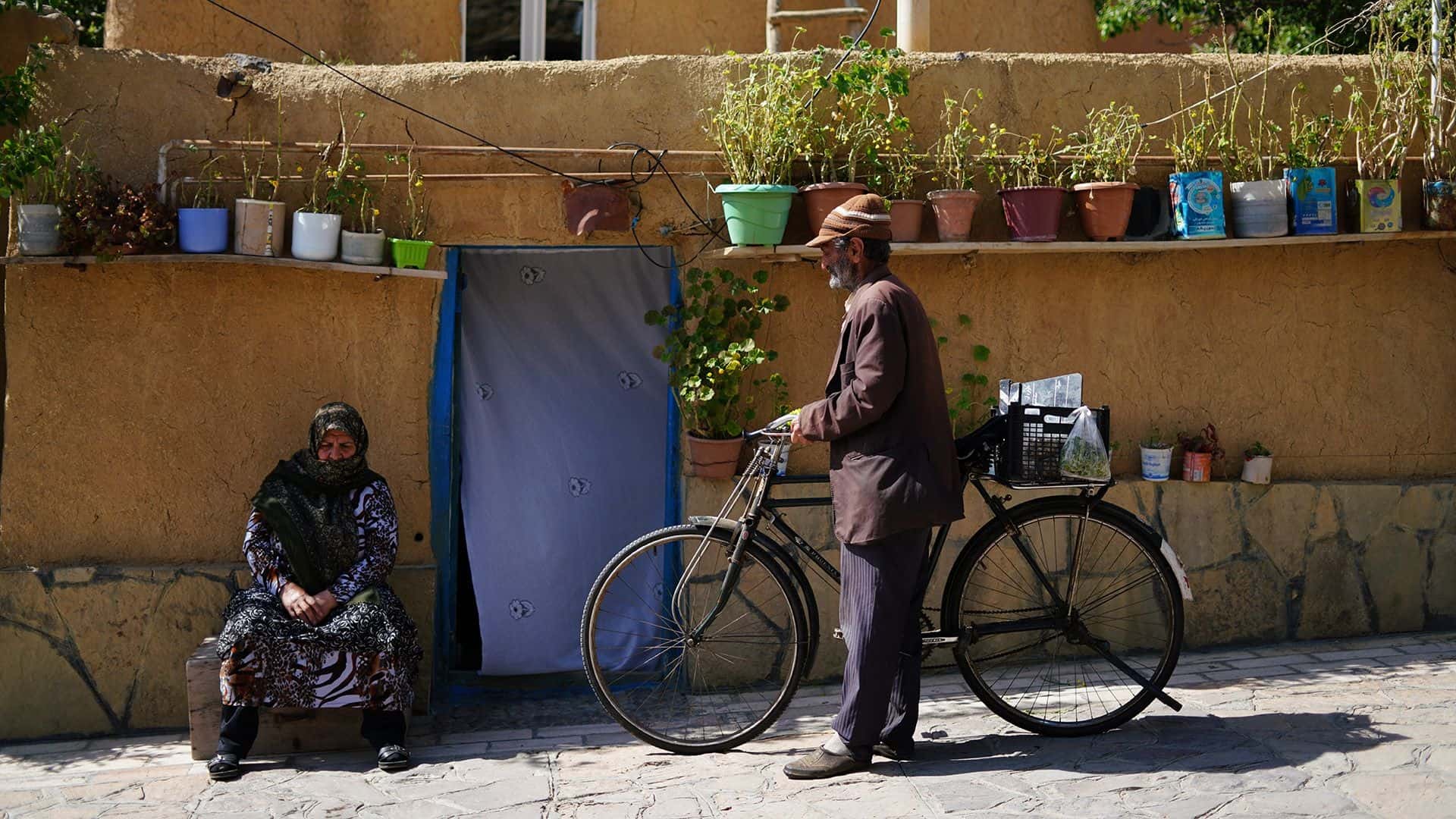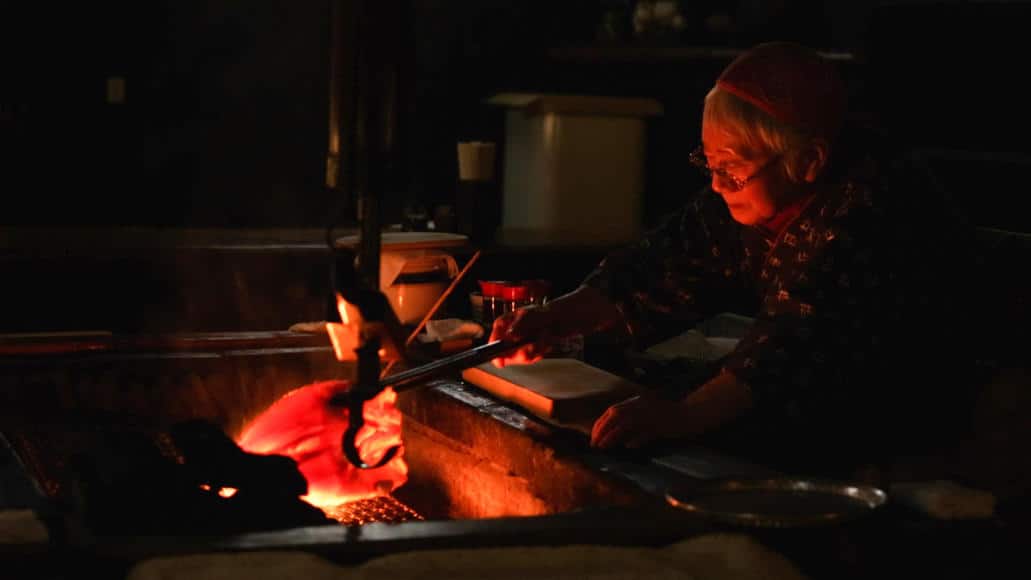By Purple Romero
Manufacturing misery as one of mainstream media’s mortal sins is purveyed creatively with organic elan in “The Slums,” winner of the Heart On Award at the Busan International Kids and Youth Film Festival 2020. The mockumentary, directed by rising Filipino filmmaker Jan Andrei Cobey, goes for the jugular, as it eviscerates the media for its messianic complex and consequent propensity to depict the urban poor as people devoid of dignity.
“The Slums” centers on the Dela Cruz family, whose plight becomes the subject of a documentary film shot in the aftermath of a fire that razed part of a shantytown in Tondo, Manila. Cameras follow them as they move inside and outside their home, their interactions with different family members as well as their individual lives captured on film.
The movie introduces us to the dynamics of a family who is very much aware of the precarity of their unstable socioeconomic station but refuses to be defined solely by it. On the contrary, instead of waterworks, what one would get from the Dela Cruzes are smiles and laughter from the typical banter between the siblings, composed of Oliver, the flamboyant gay son, the perceptive firstborn Pamela and the energetic youngest child Boy as well as from the romantic bickering between their parents, Nayda and Julio.

The documentary crew tries to distort and manipulate their reality, however, to create a narrative that will fit their own streotype of the poor. They direct Oliver to act as if he is begging in the streets, while they ask leading questions to Nayda to extract the drama that they need. They make her feel small by commenting on her physical appearance and insinuating that there is something mentally wrong with Boy.
Even as the crew tries to impose on them the messaging that they must be fed up with their lives and they cannot find any fulfillment because they aren not wealthy or privileged, the family, without any pretensions, is still able to show that they are happy. They have simple joys. They bond over fixing a broken TV and find ways to re-create that happiness even if their only source of entertainment, the TV, gets broken.
The documentary creators seemed unhappy with the fact that the Dela Cruz family is happy though amid the hand that they are dealt with, so they concoct causes of pain that could trigger the family. What the documentary crew did not expect though is that the family would fight back.
Cobey deftly uses colors and lighting to show the artifice of the media. When the Dela Cruz family is shown as part of the documentary, they are presented in black and white to convey the supposed dreariness and sadness of their situation. When they are made to relive the fear they experienced from the fire, the lighting of the film becomes darker, as if to show how their agency is being forcefully taken away from them.
Cobey’s choice to make “The Slums” a mockumentary made it possible to naturally employ comedy as a tool to scrutinize the media’s own violation of its ethics. The comedy comes from the jokes, the humor and the lighthearted warmth of the Dela Cruz’s relationship as a family, but, now rich with sarcasm, also stems from the duplicity that the media is sometimes guilty of embracing for the sake of playing up to its role of “saving” the marginalized.
The whole cast has a natural chemistry which made it believable for them to be a family. Sunshine Teodoro and Don Melvin Boongaling are effective as a couple. Boongaling gives a superb portrayal not only as a husband who will do what he can to ease his wife’s insecurities, but also as a father who will make sure his children will grow up to be decent people even if they are bereft of material wealth. Teodoro, on the other hand, is able to show how her positive disposition slowly deteroriated with the increasing intrusion of the documentary filmmakers in their lives through the change in her manner of speaking, her mood shifts, her body language.
The kids are all luminous. Dylan Ray Talon gives a very realistic performance both as a gay teenager who dreams of joining the Miss Universe pageant and as an obedient son who willingly follows his mother’s orders to do the household chores. Jorybell Agoto, the first to call out the documentary crew for projecting their family as nothing but dumb, passive subjects for another material, is fierce and uncompromising. The youngest child, played by Kenken Nuyad, is delightful and charming, with that gleeful smile of his and faraway look enough to signal the movie’s tonal shifts.
Through the movements of the camera and the pattern in the shots,“The Slums” is able to situate the audience as someone who would view the Dela Cruz family from the angle of the one shooting the documentary film. Medium shots are used during scenes when the family members are being interviewed, while the camera would zoom in when the expression of the interviewees would show even just a hint of discombobulation to amplify drama. Through this variety of shots and framing, Cobey is able to establish the perspective of an outsider and make the viewers feel as if they are also the media trying to invade a family’s personal space.
The mockumentary comes from a very personal space for Cobey, whose parents also experienced poverty. He detested how people like his parents and their communities were often depicted as “powerless,” as he told Korea.net in this July 2020 interview. “The Slums” then is his way of taking back their narrative, of saying no to the exploitation of trauma, of criticizing the temerity of the media to be self-righteous. The movie is a humbling reminder to those behind the camera to be self-aware, to not let their prejudices dictate the discourse, to let people speak and live their own truth, instead of just foisting or presenting the version most convenient to their agenda.















